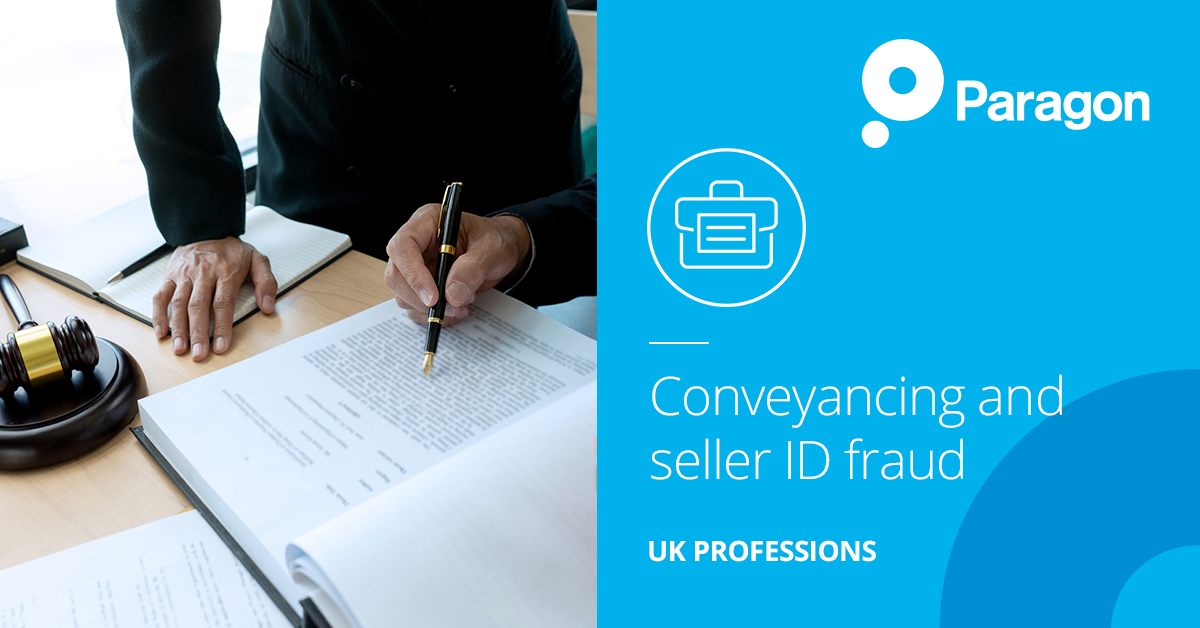
Seller ID fraud in conveyancing matters remains a significant issue for law firms and in turn insurers. These challenges are leading to increasingly onerous agreements from purchaser’s solicitors, more in-depth underwriting from insurers and ultimately more claims and higher insurance premiums.
Reynolds Colman Bradley LLP’s (RCB) article, in partnership with Paragon International Insurance Brokers (Paragon), provides an insight into these challenges This is particularly pertinent as the conveyancing market rallies, although we are now faced with a second lockdown. So, the ability to meet face-to-face is reduced, but the need for transactions to progress continues!
RCB is a specialist law firm with expertise in managing and resolving claims in the Insurance, Commercial and Construction sectors. As LawSelect’s panel solicitors they are well versed in the changing legal landscape and the resultant issues this leads to from an insurance liability perspective.
Don’t Crack the Code – Improve It
- When is it a good idea to amend Law Society Best Practice?
- Shouldn’t that be obvious?
As a Law Society (“TLS”) Professional Indemnity Insurance Committee (“PIIC”) Member, I regularly hear (and sometimes contribute to) criticism of our solicitors’ establishment in Chancery Lane. But, in encouraging conveyancers to comply with the Code for Completion by Post, TLS is seeking to defend our conveyancers and their clients. Post may have moved on, the principles in the Code have not.
Solicitors are paid to be creative, or awkward, or to get problems solved. But, while it is a long time since I undertook any conveyancing in everyday property transactions, I hope solicitors never stray very far from The Conveyancing Handbook, the Practice Notes and all the learned communications TLS Land Committee contributes to.
That is especially true of the Code for Completion by Post.
Who Compensates An Innocent Buyer? – Pre-contract Enquiries and More
The Court of Appeal judgment of Dreamvar (UK) Ltd v Mishcon de Reya and others is now well over two years old, but it is still challenging conveyancers. In the case, a purchaser’s solicitor in a fraudulent transaction was ordered to pay damages in addition to the seller’s solicitor, despite acting honestly and reasonably. This followed a highly controversial High Court judgement that only the purchaser’s solicitor would be liable.
Wary of a seller’s bona fides, some purchaser’s solicitors now request a representation from seller’s solicitors that the sellers are genuine, indicating that the transaction will only proceed in reliance of that representation. This is about as transparent as one can get about trying to lure a seller’s solicitor to directly accept liability for a ‘client’s’ fraud. And, to weary but wary conveyancers, in a changing regime of risk, this might seem a sensible approach. However, this is a dangerous belief.
Does Dreamvar Change Anything?
Purchaser’s solicitors will always be potentially liable to a purchaser for breach of trust in most fraudulent conveyancing transactions. Relief from sanctions under s.61 of the Trustee Act 1925 might be a possible outcome, although it is by no means guaranteed, and every case will turn on the facts. Dreamvar does not change this. It may be hard to hear, but a warranty or guarantee may not change that either.
Mishcon’s fate as purchaser’s solicitors in Dreamvar, and the Court’s refusal to grant relief under s.61, turned, on their rather spectacular ability to pay out as compared to the purchaser. This was a crucial factor at both the High Court and the Court of Appeal. As the High Court noted, Mishcon acted honestly and reasonably in the transaction, but also had a substantial Professional Indemnity policy.
In Dreamvar, conveyancers should also bear in mind that the Court of Appeal confirmed the seller’s solicitor to be in the best position to query whether the seller is genuine. If these queries are answered incorrectly (or even not at all), then the seller’s solicitor may have liabilities towards the purchaser.
Keep to the Code – even as a Purchaser
Forget about Dreamvar for a moment and consider the Law Society Code for Completion by Post. Remember that under the Code, if the seller is not the genuine owner of the property, the seller’s solicitors should also be liable for breach of trust and breach of undertaking. This will still be true whether or not some sort of warranty is given. Accordingly, and assuming the sale is being dealt with by way of the Code, warranties do not add any comfort for the purchaser.
Because of this situation, it makes almost no sense for a purchaser’s solicitor to demand a warranty or a guarantee from the seller’s solicitors. Of course, you may think, there is no reason not to request such a warranty either – best to be thorough. Even the seller’s solicitors, one might argue, have little reason in denying such a warranty – after all, they are only opening themselves to another claim for the same damages they were already liable for. Such thinking would be mistaken.
Best Practice – Balanced Risk
Conveyancing solicitors would do well to remember that the Code for Completion By Post is ‘intended to provide a fair balance of obligation between seller’s and buyer’s solicitors and to facilitate professional co-operation for the benefit of clients’. Further, the Code for Conveyancing states that parties should ‘Comply with the Law Society Code for Completion by Post without variation unless there has been prior agreement to vary’. Accordingly, the position of the Law Society Conveyancing Committee and the Conveyancing Quality Scheme is that the Code is best practice and provides a fair balance. That is why the Code exists: not as some warning list of minimum requirements, but as part of a comprehensive guide to conveyancing.
A Brief Note on Shooting Yourself in the Foot
If you as the purchaser’s solicitor request warranties from the seller’s solicitor, this may also make your position worse in the case of fraud. It goes without saying that merely stating one relies on the seller’s solicitor to confirm the identity of the seller is not enough to actually impose that liability on the seller. This much was confirmed in Dreamvar. The seller’s solicitor would have to accept liability to the buyer, which they are not required to do and accordingly would not sensibly do.
So, what if you receive a vague or incomplete warranty or even a complete refusal? If the sale does turn out to be a fraud, any court looking at the evidence would see that you accepted an incomplete warranty or proceeded with the sale even though a warranty was refused. This looks bad enough, potentially, to harm your chances of receiving relief under s.61. And, seeing as you cannot compel the seller’s solicitor to provide such a warranty, you would be effectively stuck.
Furthermore, if parties in conveyancing transactions are to request or offer warranties as stock elements of such transactions, the value of those warranties has the potential to sink to a point where a court would be reluctant to treat them as genuine markers of any sort of reliance. Meaningless warranties are far less safe than genuine, case specific, due diligence that responds to the facts at hand. Which is where we move on from ‘Post’.
In the internet age, clients expect more. In time, the Code will need updating. There are specialist online providers. Identities can be checked independently, to a point. As these services develop, new standards will be expected.
The most resourced parties to normal domestic transactions are regulated CML lenders. But it is the not so normal transactions where there are higher levels of concern. That probate property as alleged might not be the cash bargain it seems. You have a duty to warn. Show clients the client verification options: after all; they had to give you ID to be a client. Didn’t they?
Do Not Over-React
Parties in conveyancing transactions should not as a stock practice, request or give warranties as to the genuine identity of the vendor. If you are not confident, warn. In the case where the purchaser demands assurances you cannot be sure of, refer them to the Code, maintaining it offers the buyer adequate protection already. Look at the specialist options. Charge for that.
If there is anything to take away from this article, it is this: the Code is one of the most useful things a conveyancer can stick to.
Paragon recommend, in line with insurers, that firms carefully consider the process, procedures and software used to verify client identities and funds – particularly as a remote working environment appears likely to continue.
We are aware that ThirdFort works with law firms, and in particular conveyancers, helping them to reduce their risk by automating identity and source of funds checks. Further details can be found at ThirdFort’s website.
If you have questions regarding Paragon, RCB, ThirdFort the content of this article or any wider risk management related issues please do not hesitate to touch base with one of our team using the details below.
Email – professions@paragonbrokers.com
Tel – 020 7280 8209
This article has been written by Steven Reynolds and James Witherspoon (of Reynolds Colman Bradley LLP’s London Office).
It is intended to provide commentary and general opinion on its subject matter. It is not to be regarded and/or relied upon as a substitute for professional advice which takes account of specific circumstances and/or any changes in the law and practice. No responsibility can be accepted by the firm or the author for any loss occasioned by any person acting or refraining from acting on the basis of this document.
